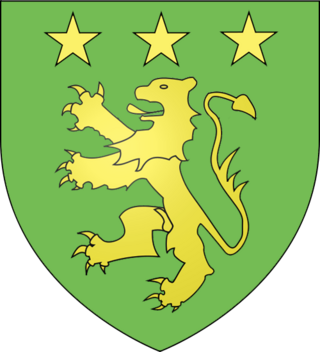
Akins is a Scottish surname and northern Irish family name.
Cochrane is a surname with multiple independent origins, two Scottish and one Irish. One of the Scottish names derives from a place in Scotland; the Irish surname and the other Scottish surname are both anglicisations of surnames from the Irish language and Scottish Gaelic respectively.
Currie is a surname in the English language. The name has numerous origins.
The family name Whelan is an anglicisation of the Irish surname Ó Faoláin. The surname originates from the Middle Irish Úa Faeláin the name of the 10th to 11th century ruling dynasty of the Déisi, a population group inhabiting the area of the modern counties of Waterford and Kilkenny in the early medieval period.

Hayes is an English language surname. In the United States Census, 1990, Hayes was the 100th most common surname recorded. The oldest record of the surname dates to 1197 in the Eynsham Cartulary of Oxfordshire, where it appears in the form Heise. There are nineteen coats of arms assumed by or granted to individuals with this or a similar surname. Though primarily a surname, "Hayes" sometimes appears as a given name in census records.
Duke is a surname meaning 'the leader' or 'son of Marmaduke'. It is the 856th most common surname in the United States.

Moore is a common English-language surname. It was the 19th most common surname in Ireland in 1901 with 15,417 members. It is the 34th most common surname in Australia, 32nd most common in England, and was the 16th most common surname in the United States in 2000.
Broderick is a surname of early medieval English origin, and subsequently the Anglicised versions of names of Irish and Welsh origin.
Barry is both a given name and an Irish and West African surname. The given name can be an Anglicised form of some Irish personal names or shortened form of Barrington or Finbarr, while the surname has numerous etymological origins, and is derived from both place names and personal names.
Carpenter is a surname. Its use as a forename or middle name is rare. Within the United States, it ranked as the 231st-most common surname as of the 2010 census. The English meaning of carpenter is the occupation of one who makes wooden objects and structures by shaping wood.
McAuliffe or MacAuliffe is a surname of Norse Irish origin. The name is an Anglicisation of the Gaelic Mac Amhlaoibh, meaning "son of Amhlaoibh". The Gaelic name, Amhlaoibh, was derived from the Old Norse personal name Olaf. The surname occurs frequently in Munster, especially northern County Cork, western County Limerick, and eastern County Kerry. The McAuliffes were a sept, related to the McCarthys.

Kelly is a surname of Irish origin. The name is a partially anglicised version of older Irish names and has numerous origins, most notably from the Ui Maine. In some cases it is derived from toponyms located in Ireland and Great Britain; in other cases it is derived from patronyms in the Irish language.
Norman is both a surname and a given name. The surname has multiple origins including English, Irish, Scottish, German, French, Norwegian, Ashkenazi Jewish, and Jewish American. The given name Norman is mostly of English origin, though in some cases it can be an Anglicised form of a Scottish Gaelic personal name.
McGurn is a surname. Notable people with the surname include:

The surname McGeachie is an Irish and a Scottish surname. In ancient times the family name in Gaelic was Mac or Mag Eachaidh.
Flanagan is a common surname of Irish origin and an Anglicised version of the Irish name Ó Flannagáin which is derived from the word "flann" meaning 'red' or 'ruddy'.
Faye is a typical Serer surname.

The patronym Faye is one of the typical surnames of the Serer people of Senegal, the Gambia and Mauritania. In French-speaking Senegal and Mauritania, and English-speaking Gambia, the surname is spelled Faye.
Melia is a family name that may originate in the Caucasus state of Georgia, in Italy, or in Ireland. Melia Bergamin. The Georgian name is believed to be derived from the word melia, meaning "fox". Names derived from Melia are Meliava, Meliva, Melua, Meluava or Meladze. The Italian history may date back to early Rome. The Irish origins may be via alterations to the name O'Maille or O'Malley.







